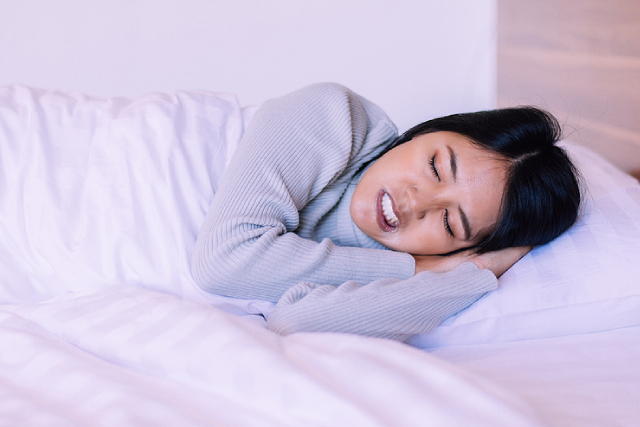Grinding Your Teeth: Why It’s Bad And Should Be Stopped Now
Sleep is the most important part of our daily lives wherein our bodies get to rest and recuperate in preparation for the following day. However, while it may seem like nothing can go wrong once we shut our eyes and drift off into slumber, there are quite a few issues to be wary of that could endanger your health.
Out of these myriad issues, teeth grinding, otherwise known as bruxism, is often dangerously overlooked. Bruxism is formally defined as the act of grinding, clenching, or gnashing one’s teeth, typically whilst asleep but often when awake. If you’ve been suffering from jaw pain every single time you wake up due to teeth grinding, learn why it happens and how you can fix it.
More About Bruxism
Bruxism, whilst it may seem harmless on the onset, brings about several adverse effects. In addition to sore jaws, the friction will cause wear of the enamel, the outermost layer that protects the tooth. Once this enamel wears off, the dentin will be exposed, and you’re one step closer to getting tooth sensitivity.
Grinding one’s teeth while asleep is generally related to other sleep disorders such as snoring and sleep apnea. Why it occurs can be due to many reasons, the common ones of which are stress, anxiety, alcohol and tobacco use, and dehydration.
Symptoms Of Bruxism
Determining if you have bruxism is simple due to symptoms that arise from grinding away at one’s teeth during sleep. Headaches are one of the common ones, followed by the following:
- Sore and/or enlarged face muscles
- Fractured and sensitive teeth
- Temporomandibular joint damage (TMJ)
- Earaches
- Stiff shoulders and neck
- Jaw pain
If some of these symptoms are detected early on, it’s best to stop and control your teeth grinding at this stage so as to prevent further damage to your teeth. Otherwise, if left unchecked, the severity of the damage to your teeth can increase and make them more susceptible to decay and even flatten them out to just stumps.
On top of that, if you have dental treatments installed, such as ceramic braces, the constant grinding can also undo the progress it has made. In the worst-case scenario, your teeth could even become loose enough to fall out on their own.
If you’ve just recently discovered that you have bruxism, it may well be a habit by now and will be something that’s difficult to break. If you have awake bruxism, you may fare better in controlling it as you’d be cognizant of it happening, but correcting this bad habit will still be challenging. In contrast, if you have sleep bruxism, you’ll need to rely on external apparatuses such as mouthguards to protect and absorb the impact of the grinding of your teeth.
Tips To Help You Stop Grinding Your Teeth
To stop or control your teeth grinding, you’ll have to resolve some of its common causes. Here are a few tips you may want to incorporate into your diet and lifestyle.
1. Frequently destress
Stress is one of the largest factors that cause bruxism. Reducing your stress by relaxing after work can immensely help in stopping your teeth grinding. Dedicate some time to unplug, meditate or exercise.
2. Reduce caffeine intake, especially before bed
Apart from stress, your anxiety levels also play a role in the issue. Significantly reducing your daily coffee intake is recommended as well as cutting it out entirely hours before going to bed. Incorporate breathing exercise into your daily routine and exercise three times a week.
3. Avoid absent-minded chewing on pencils or any other object
The goal is to discourage the habit of grinding your teeth, and absent-minded chewing does not help in that regard. If you have a habit of biting your nails, you can start by keeping your nails trimmed short or apply bitter-tasting nail polish to your nails. If you’re tempted to chew on your pencils, pop a piece of sugar-free gum and chew on that instead. Be mindful and start gradually decreasing your gum consumption from thereon.
4. Cut out chewy foods from your diet
After a night’s worth of grinding, your jaw needs a break. Removing chewy foods from your daily meals will give your jaw its much-needed respite.
Conclusion
Bruxism is a bad habit to have and must be stopped early on. While it’s not impossible to do so, the damage it has caused may well depend on the severity. Apart from jaw pain, your teeth may sustain heavy damage due to the constant friction. If this isn’t taken care of in the beginning stages, your teeth may fall out!
If you’ve reached this stage, don’t worry! All hope is not lost yet. Simply reach out to a dental professional to get them replaced with dental implants. And at Luminous Dental, we have the experience and technical know-how to help you with just that.
Established in 2007, our team of medical professionals have honed their expertise through years of experience in treating dental problems. Whether you just want to have braces installed or need help with more serious matters, you’re guaranteed to be in safe hands with us.

